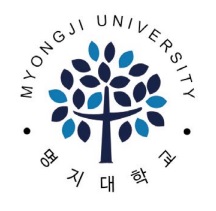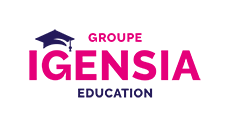Myongji University

Strengths
Myongji University is a private Christian university founded in 1948.
The tree in the logo symbolizes the founding spirit of the Myong Ji Educational Foundation, which is to imbue students with the Christian faith, so that they can become dedicated and competent leaders, capable of contributing to the progress of culture and world peace.
The school’s mascot, the white stallion, represents the profound hope that Myongjians will be imbued with virtues such as loyalty, courage, obedience and purity as they gallop through the world for the realization of God’s kingdom here on earth.
Major, Academics
Lectures in English
More information: https://enter.mju.ac.kr/notice/list.php?sMenu=eng27&tname=enter
Campus
Myongji University has two campuses: one in Seoul (Humanities and Social Science) and the other in Yongin, one hour from Seoul (Arts and Natural Science).
The Seoul campus is located close to the economic, political and cultural center of the city. It benefits from easy access to public transport and is located close to the Sinchon district, one of students’ favorite hangou
The Yongin campus is a beautiful, natural campus located 50 minutes from Seoul.
Close to Yongin City Hall and the city’s medical center, it’s within easy reach of the traditional Korean folk village and Korea’s largest amusement park.
Club OULAMI is made up of Korean students who help international students integrate from the moment they arrive until they leave, to cope with any difficulties they may encounter with cultural and social differences.
To discover
Korea’s capital is a fascinating blend of history and modernity, as well as the country’s culture and values. Seoul is even more astonishing when you consider that it was reduced to rubble after the devastating Korean War just a few decades ago.
During your stay, don’t miss the various Palaces, the Noryangjin Fisheries Wholesale Market, a huge seafood wholesale market, the traditional Gwangjang Market, 5,000 independent stores and boutiques selling everything from high-quality hanbok (traditional Korean costumes). On the way out of town, Bukchon Hanok Village offers visitors a glimpse of what life was like in the past. These traditional homes were at the center of the family life highly regarded in Korea’s Confucian culture. The most popular and relaxing walk is along the banks of the Cheonggyecheon, a river that has been freed from its concrete straitjacket to offer Seoulites a breath of fresh air.
Good to know
April marks the start of the cherry blossom season and the cherry blossom festival. The “Cherry Road” is dotted with Japanese cherry trees that only blossom for a few days, as the flowers are quite fragile and fall off in the wind. These trees do not produce cherries.
The festival is not just about flowers, but also about food. Departments and student clubs take advantage of this festival to sell different kinds of food.
Eligibility
Score TOEFL 533
ABS: 2nd, 3rd, 4th year
ESAM: 3rd, 4th year
ICD PGE, BBD
Documents required
Resume (in English)
Transcript of records
ID Document
Cover letter (in English)
Additional documents will be requested according to the destination
Planning
AUTUMN
Orientation: few days before lectures start
Lectures start : end of August
End of lectures and exams: mid-December
SPRING
Orientation: few days before lectures start
Lectures start : end of February
End of lectures and exams : mid-June
more info: https://enter.mju.ac.kr/notice/list.php?sMenu=eng27&tname=enter
Procedures
Passport valid for six months after your return date.
Visa is required.
The Korean government requires all foreigners enrolled in programs offered by Korean higher education institutions to be affiliated to the national health insurance scheme.
For more information: https://youtu.be/cUC3B0BnJ5U
Accommodation
On-campus dormitory accommodation is available, but this is not guaranteed as places are in high demand.
Depending on the residence and the room (double or single studio), expect to pay between €1,000 and €1,600/semester.
The dormitory building on the Seoul campus was built in 2006.
The building can accommodate 864 students in 309 rooms. There are five dormitories on the Yongin campus, which can accommodate 1,866 students.
Each room is equipped with beds, closets, desks, shelves, telephone, air conditioning and refrigerator. Microwaves and kettles are available in the kitchen.
Other facilities are also available, including a laundry, seminar room and grocery store.
more info: https://enter.mju.ac.kr/enter/enter_eng_05.php?sMenu=eng25

